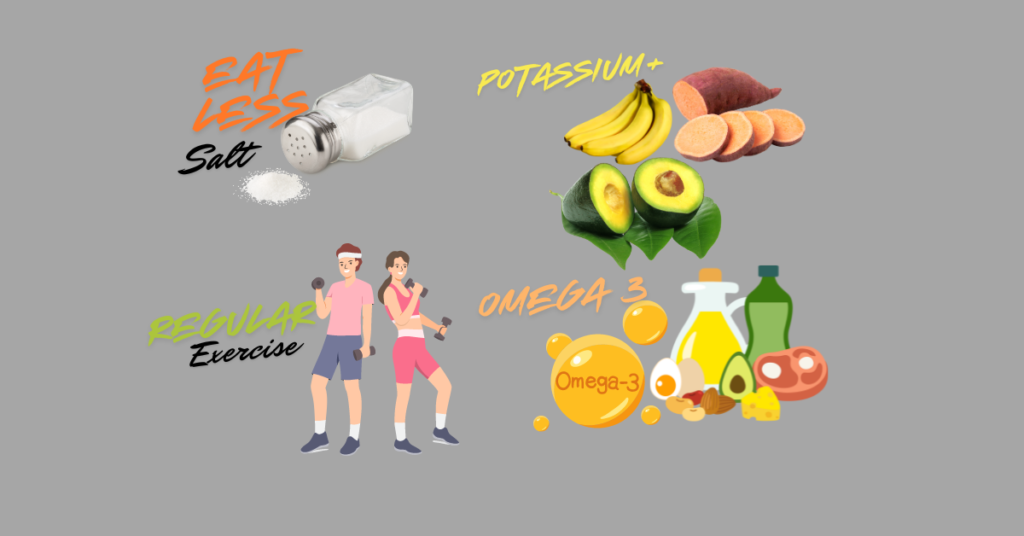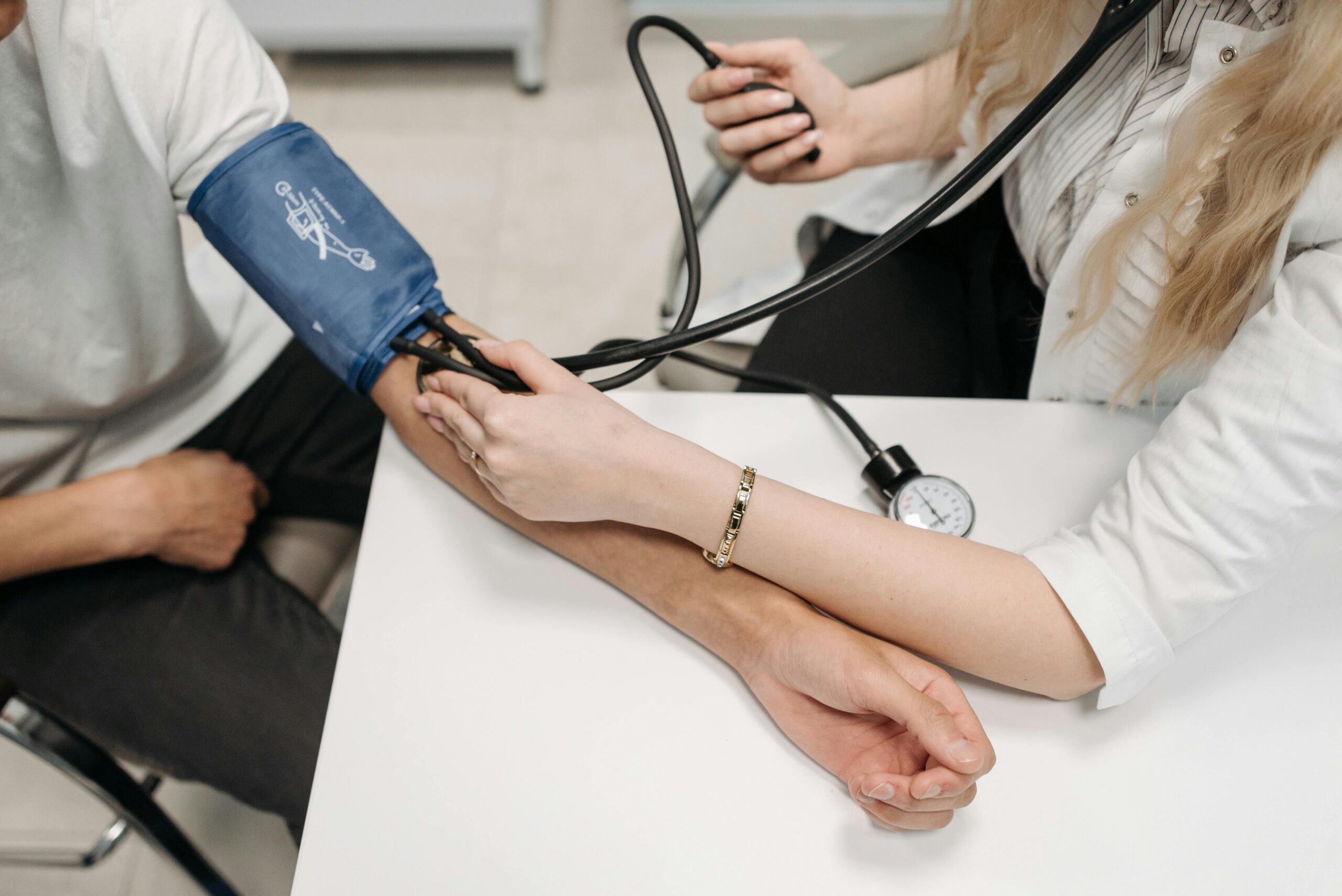Home remedies and lifestyle changes can play a significant role in managing high blood pressure without medication. Simple changes in diet, exercise, and stress management can help lower blood pressure levels naturally. By incorporating these practices into your daily routine, you can take control of your health and reduce the risk of complications associated with high blood pressure.
Understanding High Blood Pressure
The Importance of Managing Blood Pressure
A crucial aspect of overall health is managing your blood pressure. High blood pressure, also known as hypertension, is a common condition that can lead to serious health issues if left uncontrolled. By monitoring and regulating your blood pressure levels, you can significantly reduce the risk of heart disease, stroke, and other complications.
Causes and Risk Factors
High blood pressure can be caused by a variety of factors, including genetics, poor diet, lack of physical activity, and stress. Certain risk factors, such as age, gender, and family history, can also contribute to the development of hypertension. It’s imperative to be aware of these potential causes and risk factors to effectively manage and lower your blood pressure.
- Obesity
- Smoking
- Excessive alcohol consumption
For instance, obesity is a significant risk factor for high blood pressure, as excess weight puts added strain on the heart. Smoking and excessive alcohol consumption can also contribute to hypertension by affecting blood flow and damaging blood vessels. It’s important to address these factors through lifestyle changes and healthy habits to prevent and manage high blood pressure.
- Lack of physical activity
- High salt intake
- Chronic stress
Dietary Changes to Lower Blood Pressure
Salt Intake Reduction
Intake of excess salt is directly linked to high blood pressure. It is recommended to limit salt intake to less than 2,300 mg per day, which is approximately one teaspoon. Processed foods, canned soups, and fast food are common sources of high salt content. Be vigilant of food labels and opt for low-sodium alternatives to reduce your salt intake and help lower your blood pressure.
Potassium-Rich Foods
Any diet aimed at lowering blood pressure should include potassium-rich foods. Potassium is known to counteract the effects of sodium and help lower blood pressure levels. Incorporate bananas, sweet potatoes, spinach, avocados, and beans into your meals to increase your potassium intake. These foods not only benefit your blood pressure but also contribute to overall health and well-being.
Understanding the significance of potassium in regulating blood pressure is crucial for those looking to naturally lower their levels. Potassium helps your body eliminate excess sodium through urine, relaxing blood vessel walls and ultimately lowering blood pressure. By consuming potassium-rich foods, you can effectively manage your blood pressure and reduce the risk of cardiovascular issues.
Lifestyle Modifications
Regular Physical Activity
Clearly, one of the most effective ways to lower high blood pressure is through regular physical activity. Engaging in at least 30 minutes of moderate to vigorous exercise most days of the week can help reduce blood pressure levels. Activities such as brisk walking, swimming, cycling, or dancing not only strengthen the heart and improve circulation but also help in maintaining a healthy weight, which is crucial for managing blood pressure.
Stress Management Techniques
One effective way to lower high blood pressure is by incorporating stress management techniques into your daily routine. Stress can elevate blood pressure levels, so finding ways to relax and unwind is crucial. Techniques such as deep breathing exercises, meditation, yoga, or tai chi can help reduce stress and promote overall well-being. Taking time for oneself and practicing mindfulness can have a profound impact on lowering blood pressure.
Another helpful stress management technique is engaging in hobbies or activities that bring joy and relaxation. Whether it’s painting, gardening, listening to music, or spending time with loved ones, finding ways to unwind and de-stress is crucial for maintaining healthy blood pressure levels. Prioritizing self-care and making time for activities that bring happiness can go a long way in managing high blood pressure naturally.

Home Remedies and Natural Supplements
Herbal Teas and Spices
Herbal teas and spices have been used for centuries to help lower blood pressure naturally. Some of the most effective options include hibiscus tea, which has been shown to have a significant impact on reducing high blood pressure. Additionally, spices like cinnamon, garlic, and turmeric can also be beneficial in managing blood pressure levels. These natural remedies can easily be incorporated into your daily routine to support better cardiovascular health.
The Role of Omega-3 Fatty Acids
Omega-3 fatty acids, found in fatty fish like salmon and mackerel, are important for maintaining heart health and reducing inflammation in the body. Research has shown that increasing your intake of omega-3 fatty acids can help lower blood pressure and improve overall cardiovascular function. Consider adding fish oil supplements to your diet or incorporating more fatty fish into your meals to reap the benefits of these powerful nutrients.
Pertaining to managing high blood pressure at home, natural supplements can play a key role in supporting your cardiovascular health. Alongside a balanced diet and regular exercise, herbal remedies like Hawthorn, Garlic, and Flaxseed, and supplements like Coenzyme Q10 and Magnesium, can provide additional support in lowering blood pressure levels. However, it is important to consult with a healthcare professional before starting any new supplement regimen to ensure it is safe and effective for your individual needs.
Monitoring and Maintaining Healthy Blood Pressure
Self-Monitoring Strategies
Many individuals with high blood pressure find that self-monitoring at home is a helpful way to track their numbers and keep them in check. Investing in a reliable automatic blood pressure monitor can empower individuals to take control of their health by monitoring their blood pressure regularly. It’s important to follow the manufacturer’s instructions for accurate readings and to keep a log of your results to share with your healthcare provider during visits.
When to Consult a Healthcare Professional
For individuals managing high blood pressure at home, it’s crucial to know when to seek professional help. If you experience symptoms such as severe headaches, chest pain, shortness of breath, or vision changes, it’s important to consult a healthcare professional immediately. Additionally, if your blood pressure readings consistently remain high despite lifestyle modifications, your healthcare provider can help adjust your treatment plan accordingly.
To effectively manage your blood pressure, regular monitoring and communication with healthcare professionals are key components of maintaining a healthy lifestyle. Be proactive in seeking medical advice when needed to ensure optimal blood pressure control and overall well-being.
Summing up
Presently, there are various natural ways to lower high blood pressure at home that can be effective in managing this condition. By incorporating lifestyle changes such as maintaining a healthy diet, engaging in regular physical activity, reducing stress, and limiting alcohol intake, individuals can positively impact their blood pressure levels. Additionally, methods like monitoring blood pressure at home, getting enough sleep, and practicing relaxation techniques can also contribute to lowering high blood pressure.
References
- Harvard Health Publishing. (2022). 10 ways to control high blood pressure without medication. Retrieved from: https://www.health.harvard.edu/heart-health/10-ways-to-control-high-blood-pressure-without-medication
- American Heart Association. (2022). How to lower high blood pressure naturally. Retrieved from: https://www.heart.org/en/health-topics/high-blood-pressure/changes-you-can-make-to-manage-high-blood-pressure/how-to-lower-high-blood-pressure-naturally
- National Institutes of Health – National Heart, Lung, and Blood Institute. (2022). How to lower high blood pressure: A guide to reducing sodium in your diet. Retrieved from: https://www.nhlbi.nih.gov/health-topics/how-lower-high-blood-pressure-guide-reducing-sodium-your-diet
- 10 ways to control high blood pressure without medication.


